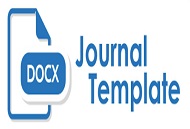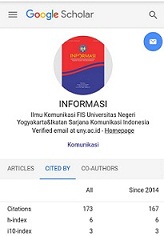KEEFEKTIFAN MODEL CONNECTED DAN INTEGRATED DALAM PEMBELAJARAN IPS SMP DI KOTA YOGYAKARTA
DOI:
https://doi.org/10.21831/informasi.v1i1.4462Abstract
This research aimed to: (1) analyze the differences in social studies learning achievement between the students using connected and integrated models and those using conventional model; and (2) analyze the hierarchy of the effect of the learning models among the connected, integrated, and conventional.
This experimental research employed a matching post-test comparison group design. The population of this research was National Standardized Schools of Junior Secondary Schools in Yogyakarta. The technique used for sample drawing was multistage sampling. In this research, the independent variable was the learning model which consisted of three categories: integrated, connected, and conventional models. The dependent variable was the mean score of students' learning achievement in social studies subject. Data collection was done by means of an achievement test. Instrument validation was done by discriminating power and difficulty index, while the reliability was calculated by KR-20. The pre-requisite test included normality and homogeneity tests. The normality test used Kolmogorov-Smirnov and the homogeneity test used Levene Test. Data were analyzed in one way anova analysis and continued with Scheffe comparison test on the significance level of 0.05. The results of the experiment show that there are significant difference among the students' learning achievement who used integrated, connected, and conventional models. The continued test using Scheffe ensured that the integrated model was more effective than the connected and conventional models, while the connected model was more effective in improving the students' learning achievement in social studies subject compared with the conventional model. Therefore, the hierarchy of the effect of the learning models is first the integrated model followed by connected and conventional models.
Key words: Connected, Integrated Models, Social Studies Learning
Downloads
Published
How to Cite
Issue
Section
Citation Check
License
Authors who publish with this journal agree to the following terms:
- Authors retain copyright and grant the journal right of first publication with the work simultaneously licensed under a Creative Commons Attribution License that allows others to share the work with an acknowledgement of the work's authorship and initial publication in this journal.
- Authors are able to enter into separate, additional contractual arrangements for the non-exclusive distribution of the journal's published version of the work (e.g., post it to an institutional repository or publish it in a book), with an acknowledgement of its initial publication in this journal.
- Authors are permitted and encouraged to post their work online (e.g., in institutional repositories or on their website) prior to and during the submission process, as it can lead to productive exchanges, as well as earlier and greater citation of published work (See The Effect of Open Access).












